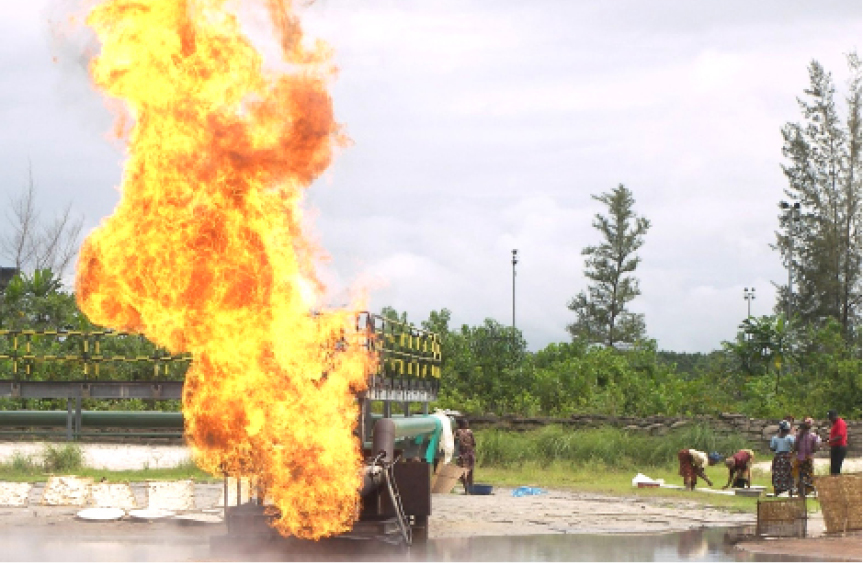35yrs after gas flare ban, Nigeria’s 2020 deadline unattainable – Bassey
An environmental right activist and Director of Health of the Mother Earth Foundation (HOMEF), Nnimmo Bassey, has said that 35 years after outlawing gas flaring, and 14 years after a court declared the act an assault on human rights, Nigeria’s hope of meeting the 2020 deadline for halting gas flaring still appear unattainable. Bassey, in […]

Gas flaring site
An environmental right activist and Director of Health of the Mother Earth Foundation (HOMEF), Nnimmo Bassey, has said that 35 years after outlawing gas flaring, and 14 years after a court declared the act an assault on human rights, Nigeria’s hope of meeting the 2020 deadline for halting gas flaring still appear unattainable.
Bassey, in an article titled ‘The Infernal Flares of the Delta’, said the entire petroleum sector architecture needed to be urgently deconstructed and reordered, including stopping gas flares by 2020, by all means necessary.
He said: “While launching the Nigerian Gas Flare Commercialization Programme (NGFCP) in 2016, the indication was given that the nation would pursue a 2020 flare-out date. The nation also signed unto the Global Gas Flaring Partnership (GGFP) principles aiming at a flare-out date of 2030.”
“The Federal Government of Nigeria has been pursuing two deadlines on the same objective. Given our laziness about meeting deadlines, it was obvious to observers that 2020 was a smokescreen and could not be a date to bank on,” he said.
He noted that since the 1960s, noises were already being made about the need to halt the obnoxious act of gas flaring, with the first deadline put at 1 January 1984 but shifted consecutively to 2007, 2008, 2010 and now 2020.
This shifting of goalposts has been made it attractive to the oil companies because the decree or act outlawing gas flaring allowed them to flare gas provided they obtained a permit to do so from the Minister of Petroleum and paid a fine pegged at $2.0 per 1000 cubic feet of gas flared in 2018.
While noting that gas flaring is inevitable in any oil field that has gas associated with the crude oil being extracted, he said such gases are usually vented or flared in order to avoid uncontrollable build up of pressure in such installations.
“The flares are occasionally lit and then put off until when pressure mounts again. However, the gas furnaces that have ravaged the Niger Delta are not lit to relieve pressure from the oil fields, they are simply lit to waste the gas, as if no one would ever complain over the waste or poisons,” he said.
“This sort of burning of the resource is termed routine gas flaring. This routine flaring is the permanent insult that operators have relentlessly piled on our people and the Niger Delta environment,” he added.
The regulation, he said, required that the producers are to maintain a daily log of gas flared. “The interesting point here is that government agencies are unable to measure or meter the volume of gas flared in the country. Neither are they able to measure the actual volume of crude oil extracted on a daily basis in the country,” the environmental right activist stated.
